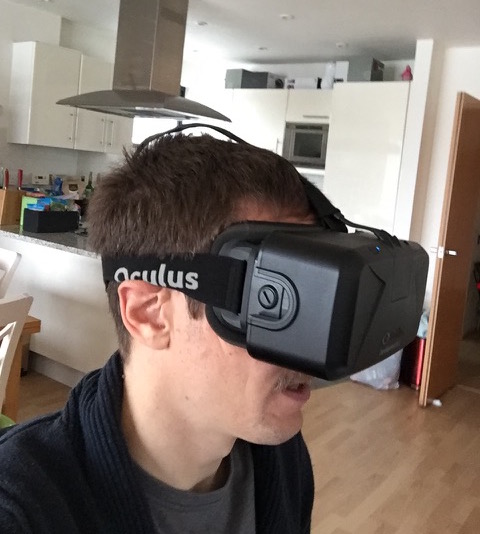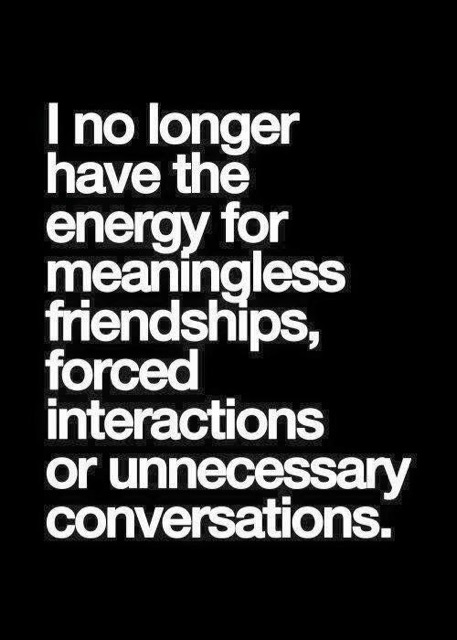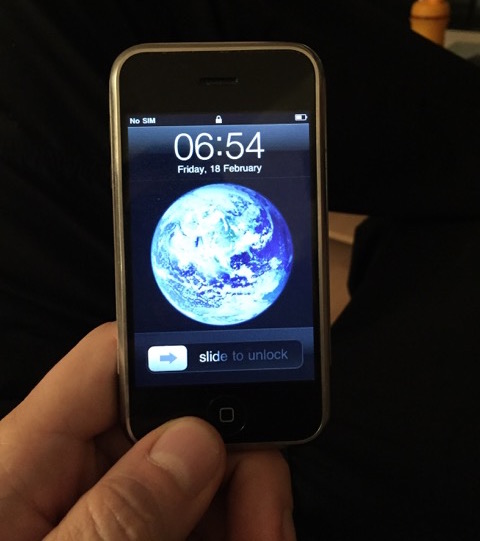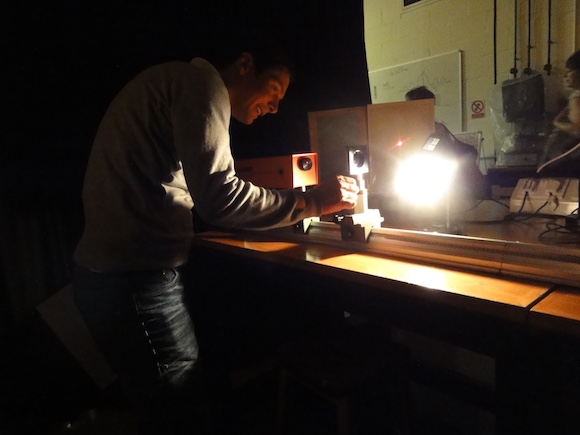This is a story about warped perceptions...

The world in which I inhabit is vastly different, depending on the state of my broken brain. Mood fluctuations cause me to interpret things very differently than a supposedly 'normal' healthy individual would.
I've written a lot this year about drug abuse, but I'd like to talk about a time before drugs even entered the story and made the water muddy. I'd like to talk about what it was like from 2008 through to 2012, when my brain was just doing its own thing, without drugs or medication.
If you're a person of prejudice, it won't surprise you to learn that drugs mess you up, but you might be surprised to learn that my mental health problems predated any drug abuse. You might also be surprised to learn that people can recover too, and go back to ordinary life, with nobody any the wiser as to your dark past.
But this really isn't about drug abuse, remember? We're talking about a period of 4 years that predated any psychoactive substances making things all messy and confusing. We're talking about when I first went to my doctor, because I was struggling with my mental health.
I spent just over a minute of explaining to my doctor that I felt completely exhausted, overwhelmed and unable to face friends, family, work or anything... I had drawn the curtains and switched off my phone, and retreated under the duvet, and could barely make it to the doctor's surgery.
"Have you heard of Fluoxetine?" my doctor asked. I said that I had, and that I knew that the trademarked name that it was more commonly known as was Prozac. I said that I had read very bad things about emotional blunting and ruined sex lives of those people who were taking Prozac. I had read Elizabeth Wurtzel's biography, Prozac Nation, where she didn't exactly speak highly of the 25 year old medication.
How sad that the National Health Service (NHS) would be offering some cheap generic pills after only a minute of getting to understand a patient's problems. It takes 6 weeks before an anti-depressant SSRI medication like Prozac takes effect, and it's a fairly serious decision, to put somebody on long-term medication. I think it's a little ridiculous that we don't offer more talk therapy, as a first line of defence.
So, I was diagnosed as having Clinical Depression, within just a few minutes. Something I also knew, but didn't have the time to discuss with my doctor, was that SSRIs can be very bad for people with Bipolar Disorder. I knew my moods fluctuated up as well as down, so I had my suspicions that I was Bipolar, and that was another reason to avoid Prozac.
When you're depressed, everything seems hopeless. I had decided that I was useless at my job, that I hated working in offices, that I hated computers and software, and that I couldn't handle a career in IT anymore. I also lost interest in going out, sex, food... I pretty much just slept, or lay in my bed feeling anxious about the fact that I was off work sick.

After a couple of months feeling like this, I hit upon the idea that I was going to write a computer game for the first generation iPhone, to be ready in time for the launch of the App Store.
Although I had decided that my office-based IT career was over, the idea of programming on my laptop in my garden in the sunshine didn't sound too bad. I knew that the early limitations of the first iPhone meant that I could make a fairly basic game, and compete with other developers. I decided that if only a few people bought my game, it was still a fun experiment.
And so began a period of intense activity. I would work for 18 hours a day, 7 days a week, in order to capitalise on those precious early days of the App Store when there were hardly any apps on there. It seems incredible now, that there were only a few hundred or few thousand apps for the iPhone. There was no Android. There was no iPad. There was just one smartphone that created a billion dollar market, overnight.
When we look at that crazy period of my life, when I was churning out apps, it's pretty clear to see that my mood had swung to another extreme. I didn't have time to explain things to people. My thoughts were racing, speech seemed like a frustratingly slow way to communicate, eating and sleeping were an inconvenience, certainly I didn't want to do anything other than work on my apps. I was single-minded to the point of obsession.
In economic terms, things paid off. I got a couple of my apps to number one in the charts, briefly. One of my apps was downloaded 8,000 times in a day once, and another one racked up 500,000 downloads in a month. This was clearly a brilliant gold rush.
I knew that the quality of the apps being released was increasing steadily, and the opportunity for one fast burning out dude in his garden were rapidly diminishing. I started to really hate the work anyway. I had a whirlwind affair as an indie games developer, and it happened so fast that I started to hate it, just like you start to hate any job that you've mastered and has become easy.
Possibly this was a sign of my mood turning again. I had managed a period of several weeks, working at a ridiculous level, and what goes up inevitably must crash down. I hadn't been able to exert myself to such an extent since the school holidays in childhood. There's no way you'd ever be given 6 to 8 weeks to concentrate and just get on and hammer out a project, in a corporate environment.

My mood started to alternate between depression and hypomania (as described above) and I would turn each episode of frantic activity into a period of opportunism, to make money or produce something tangible.
Getting myself back into an office environment and doing some IT contracting re-stabilised me a little bit, and getting a boat so that me and my friends could go wakeboarding was something I was passionate about, and consumed my lunchtimes, after work in the summer, and weekends. My life got back to normal, for nearly 2 years.
During that first depression, I had set certain wheels in motion, however. One particular scheme was retraining as an electrician, while I was working as a programmer still. When I had finished my training, I quickly quit my job.
Going back to an unstructured form of making money, I started working too hard again. Building a business from nothing, to breakeven and hopefully to profitability is not quick and it's not easy. I managed to start getting good clients and increasing my turnover very quickly, through some shrewd partnerships and advertising choices. However, I was extremely inexperienced, and took on way more work than I could manage, sustainably.
I got my new business to the point where it was profitable, and had paid back the initial capital expenditure on training, van, tools etc. but I was burnt out again. I had lived and breathed my business, and only because it was hard physical work, had it lasted slightly longer before my brain was finally frazzled.
Depression reared its ugly head again in 2010, and I realised that I had made a mistake in cutting away from the easy money that a career in IT had to offer. I failed to recognise the importance of a stable working environment though: restricting your hours to 40 or 50 a week, giving yourself weekends off, having the occasional holiday, working with other people who share some of the responsibility and workload... those things are important.
My hypomania started to get a bit more extreme. After reading an enormous pile of books on Particle Physics and Quantum Mechanics and other theories & models of theoretical Physics, I started to read huge amounts of academic papers from Cornell University's online library.
Some of the academic papers that I read were extremely interesting to me, and I emailed the authors to ask them questions. To my surprise, most of them responded, and we started to correspond via email.
Spurred on by this, I started to believe I could author my own paper and get it published, and I developed a hare-brained idea of my own, around a thought experiment that was particularly hard to test in the real world. I eagerly sent my paper off to several academic journals. A couple of the journals even responded... unsurprisingly to say that they wouldn't publish something that hadn't been peer reviewed.

Obviously, it's on the border of a delusion of grandeur to imagine that you might have anything of merit to contribute to a field, after only a few months reading the literature and educating yourself about the deepest mysteries in the Universe.
These delusions are something that I've always been wary of, and I try to be self-aware, but it's fairly clear that there was a progression in the difficulties that I was having with Bipolar Disorder, and the regulation of my moods. I wasn't imagining that I was the next Einstein, but I was having to say to myself "be careful, you're not the next Einstein" and give myself regular reality checks.
I still cringe when I think about some of the emails I sent to very important academics, and how, even though they indulged me, it must have been with slight tongue-in-cheek, to respond to a complete layman such as myself.
After yet more time lost in a pit of despair and hopelessness, where I did very little except for mow the lawn and feed the cat, the iPhone App gold rush cropped up again. This time I decided to sell picks & shovels.
Depressions are very similar to one another. You sleep a lot, you don't do much, everything looks shitty and you hate yourself. My depressions were clearly getting worse, as I started to think about suicide more and more. I started to accumulate more and more paraphernalia with which I could kill myself: inert gas, razor blades, Barbiturates, Cyanide etc. etc.
Periods of hypomania are easier to tell apart, because I can tell you what I was obsessed about in each one: iPhone Apps, boat, megashed, electrical business, physics and then my picks and shovels for the iPhone App gold rush.
I formed another company - Roam Solutions - which was later to become MePublish.com and Hubflow.com. I talked a couple of friends into joining me on my mad escapade, and generally threw everything and the kitchen sink at this particular endeavour.

My new company put on an exhibition stand at London Olympia, Learning Technologies conference, only months after I first conceived the idea for the service we sold. Delivering eLearning was something I knew nothing about, but that wasn't going to stop me.
By the time the winter was over, I had managed to get the company involved with the TechStars network, and we relocated to Cambridge in order to do a 13-week technology accelerator program, where we would be introduced to billions of dollars worth of investors.
13 weeks is just longer than the sweet spot for one of my hypomanic periods, and I was really struggling by the end of the program. Suicidal thoughts were quite intrusive, and I was drinking like a fish. I hated myself, and what felt like lies that I was telling to potential investors. It was a struggle to keep going to the end of the program.
I feel bad that I let 2 co-founders and 11 investors down really badly, when I imploded in September 2011. I never got back on my feet, because of relationship problems and a number of things that eventually led to very bad life choices and a whole world of pain, destruction, devastation.
I don't feel too bad because I'm clearly unwell and because nobody risks their money and a stable job unless they want to try and get rich quick. I genuinely didn't pull the wool over anybody's eyes. There was a big opportunity there, and I'm only partly to blame for everything going tits up. The biggest part, perhaps, but still only partly.
Writing code for iPhone, iPad, Android and BlackBerry, as well as the back-end (serverside code in PHP, Linux administration, database etc. etc.) plus rebranding, raising money and everything that goes with a startup is a hell of a lot to fit into 13 weeks. A crash was inevitable for me: I was too close to the detail, too close to the coal face, too close to the customers, too honest with the potential investors.
At the end of the day, I got my arse handed to me. I was completely spent. I've never experienced such hard work and stress and pressure in my life, although there was a lot of fun too, and I had an incredible time meeting some of the most inspiring people I have ever had the good fortune to cross paths with.
The main lesson I learnt though, was that I really can't ignore my mental health. Even if I avoid clinical labels, like Bipolar Disorder, I definitely have a predisposition to mood instability if I make bad choices. I can't ignore the number of times I've swung between extreme depression and extreme 'highs' which are characterised by massive productivity, and increasingly delusional hopes of being rich and famous.
Things are obviously still very 'up and down' for me, but there is seemingly no end to things that spur on my hypomania. Most recently I ended up working on HSBC's number one project, and being made responsible for a really critical part of that project, by the CIO at the project townhall, in front of the entire team. The facts as they are presented to me, do little to discourage a kind of boom & bust lifestyle.
I guess I could reshape my life around working for 3 to 6 months, and then taking 3 to 6 months as a break to recover from my over-exertion, but I don't think it's very healthy. I'm now faced with the challenge of how to manage my own mental health in a more sustainable way, before I really run out of luck and tread on some toes that get me in super big trouble.
Wish me luck. I'm going to need it.

I really didn't sleep very much while I was at HSBC. Naturally, this started to be detrimental to my mental health. Eventually, I was very sick indeed, and it was hard to continue... I had to go into hospital
Tags: #bipolar #depression #suicide #mentalhealth #career #banking
